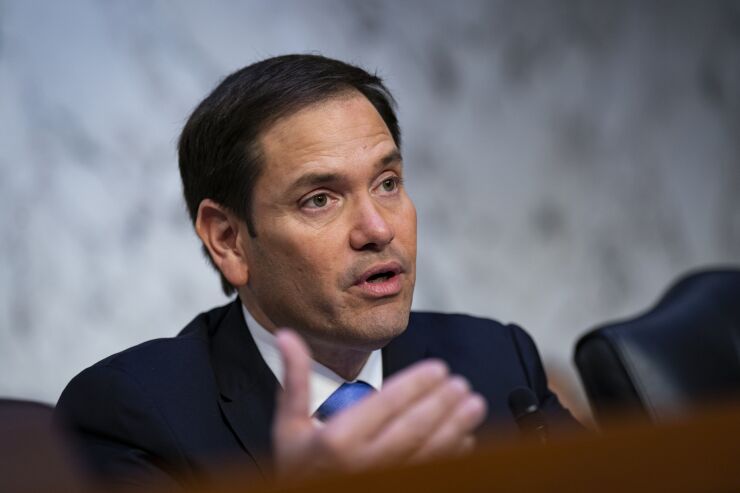The Internal Revenue Service would allow tax-exempt bonds to be issued for space infrastructure under bipartisan legislation introduced Wednesday in Congress, with supporters like the
"As adversaries like China continue to expand their presence in space, it's imperative the United States takes decisive action to bolster our own capabilities," said Florida Republican Sen. Marco Rubio, one of the bill's sponsors, in a statement. "The
The legislation calls for spaceports to be treated like airports under exempt facility bond rules, allowing for the issuance of tax-free private activity bonds that would be exempt from the state volume cap.

Sen. Ben Ray Luján, D-N.M., co-sponsored the Senate bill with Rubio, while Rep. Neal Dunn, R-Fla., and Rep. Salud Carbajal, D-Calif., introduced a companion bill in the House. "Our airports and seaports receive tax-exempt bonds, and our spaceports should have the same opportunity," said Dunn. "This would incentivize private-public partnerships that bolster innovation and spur economic growth."
Space investment,
"This strategic policy change empowers our state and national leaders to leverage the power of financial markets to accelerate space infrastructure development and bolster the economy," said Rob Long, president and CEO, Space Florida, the state's aerospace finance and development authority, in a statement. In Florida, there has been more than $2.1 billion in private investment across 44 spaceport infrastructure projects since 2012, according to the group. Space Florida wrote a
"This policy change will help bring that same level of investment to states across the nation, signaling to investors that space infrastructure is a viable investment that helps revolutionize the way we approach the space economy, all while reducing the burden on taxpayer dollars," Long said.
In 2020, the Government Accountability Office released a
Commercial space launch activity has been steadily growing over the past five years, according to the Office of Commercial Space Transportation, which forecasts launch and re-entry activity to increase to a range of 123 to 288 by 2027.
The U.S. saw a record 105 rocket launches last year, with an unprecedented 74 from Florida's space coast, according to the Federal Aviation Administration's Office of Commercial Space Transportation, which regulates all private launch and reentry activities and the operations of launch and reentry sites. The U.S. has 14 licensed spaceports across the country, six of which are located in Florida.





